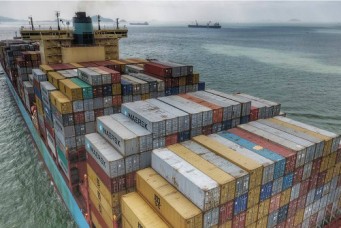Toward an Egyptian Open Society
After two years as president of Egypt, is Abdel Fattah El-Sisi fulfilling his promises?
Two years have now passed since Egypt elected President Abdel Fattah El-Sisi. This is an auspicious opportunity to evaluate and assess progress by Egypt in dealing with its pressing challenges, particularly since the president had publicly said that there would be significant progress within two years.
Before doing so, I feel compelled to emphasize that in the sixty years between 1952 and 2011 Egypt had only had four presidents, while in the five years from 2011 to 2016, it has had another four presidents, and of course two revolutions.
It is therefore important that we do not underestimate the ongoing challenges of transformation in the country or, on the other hand, find excuses for not doing more with dispatch to fulfill the aspirations of the Egyptian people for better governance, inclusiveness, and equal opportunity, be that in political, economic, or social issues.
Consequently, while I fully understand the political value of setting a two-year target for improvement, it may in fact become a benchmark for criticism if achievements do not match expectations even if the target was not realistic.
Over the last two years, the security situation has considerably improved. Public disorder and hooliganism have essentially been redressed. Crime is still higher than prior to 2011 but in relative terms it is on a decreasing trend. Security threats in the Western Desert on the border with Libya and in northwestern Sinai appear to be diminishing somewhat, but remain significant enough to draw substantial security resources and put a damper on the promotion of tourism. Anecdotal real-life evidence in the marketplace suggests that the economy is picking up, particularly with the increase in small and young entrepreneurs. Inflation, however, is rising at an alarming pace. Unemployment among white collar graduates is disproportionately high. It is not clear whether income is more evenly distributed, and revenues from interest, foreign or domestic, are significantly lower than what is required to meet the population’s demands.
Economically, Egypt faces a difficult liquidity problem leading the government to borrow extensively to meet short-term needs, with all the potential ramifications this may have on economic health in the future if loans are not directed properly at productive enterprises. Noteworthy, however, is that Egypt is finally dealing with many of its economic issues candidly and openly. It has reduced subsidies and developed a value-added tax, not only to increase revenue but also to help institutionalize the informal economy. And it is embarking on a loan agreement with the International Monetary Fund which is as useful as a reform tool as it is a source of finance.
With the election of the president, the parliament, and the adoption of a new constitution, the July 3, 2014 transition roadmap has been concluded. However, the political process in Egypt remains challenging. Political parties are numerous but generally ineffective. Many media outlets are privately owned and often replete with criticism going well beyond professional norms, and attempts to consolidate outlets are worrisome. More importantly, analytically critical journalism remains weak due to low standards of practice and the absence of transparency or a culture of accountability.
In terms of democratic nation building, recently we have seen the release of a number of activists and there appears to be a readiness to revisit the cumbersome demonstration law. However, the basic argument that civil liberties can only be provided when full security and stability are achieved begs the point. Much remains to be done and can be achieved before crossing or contradicting national security considerations.
On foreign policy, Egypt’s different national security institutions have been more active. And, the president has made serious efforts to explain the country’s challenges and opportunities internationally. The next important step is to transition from expansion to expression and engagement by publicly spelling out policies and suggesting options.
Egypt will start reaping some returns on its efforts during the next two years. However, to fulfill the aspirations of its energized people, it will have to more enthusiastically embrace two of the basic tenets of an open society in a technologically advancing world: transparency and accountability.
Progress will be incremental. However, embracing transparency means clearly enunciating policies, be they economic, political, or social. Frankly, while I see progress in the execution of projects, I find the development and enunciation of comprehensive policies wanting. This needs to be corrected in order to optimally reap the benefits from the execution of projects and to give domestic, regional, and international stakeholders a better understanding of our sustained direction.
Everyone in Egypt seems to feel they can hold everyone else accountable. In fact, some believe we are on accountability steroids. The judgmental nature of debates, however, has generated an industry of ineffective talking heads. Yet, accountability is weak and remains a process alien to most public figures who continue to refrain from providing public data out of fear of being held accountable, or respond to queries and questions as intrusive threats rather than as a right of citizenship. We need to encourage and embrace serious inquisition and legitimate accountability to raise the level of public debate and the efficiency of government.
Two years into President El-Sisi’s term, Egypt definitely has moved forward. Much more, however, needs to be done, particularly in the art and science of policymaking, for Egyptians to feel that their aspirations after two revolutions are closer to fulfillment.
Nabil Fahmy, a former foreign minister of Egypt, is dean of the School of Global Affairs and Public Policy at the American University in Cairo.




